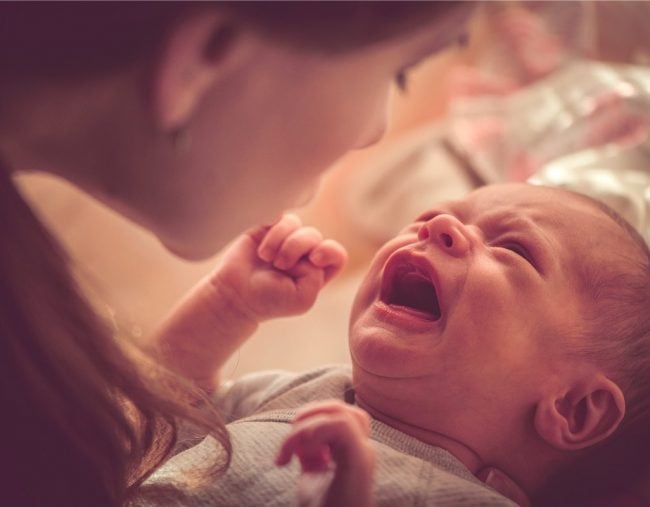
Extremely unsettled babies with a combination of sleeping and feeding problems are at a greater risk of developing mental health issues during childhood, a new study has found.
Babies at the age of one who cried a lot, had excessive sleep issues, threw many severe tantrums and had problems eating solids are 10 times more likely to display symptoms of mental health problems, according to research from the Murdoch Children’s Research Institute (MCRI).
The paper, to be published in the journal Pediatrics, was presented at the Sleep Down Under Conference in Brisbane on Monday after lead author Dr Fallon Cook followed up on the babies’ mental health at ages five and 11.
“These babies are also more likely to have delayed language development and reduced academic achievement,” Dr Cook said.
But parents with babies who don’t sleep consistently should not be alarmed by the findings, the researcher said.
“It is the combination of multiple severe problems that can indicate the beginning of difficulties for the child.”
Around 25 per cent of parents reported a 12-month-old with disturbed sleep, but not other unsettled behaviours, and they did not have any poor mental health outcomes, Dr Cook told AAP.
The study found about 3.4 per cent of the nearly 2000 children in the study fell under the “moderate to severe regulatory problems” category that indicated increased risk of poorer mental health in childhood.
While previous research had shown mental health difficulties emerge during childhood or adolescence, this study showed the pathway towards poor mental health can begin in infancy, Dr Cook said.
The MCRI researchers collected data from 1759 children, with parents reporting whether their infant had trouble with sleeping, feeding and excessive crying.
Team Mamamia demonstrate how to ‘soothe’ a crying baby.
